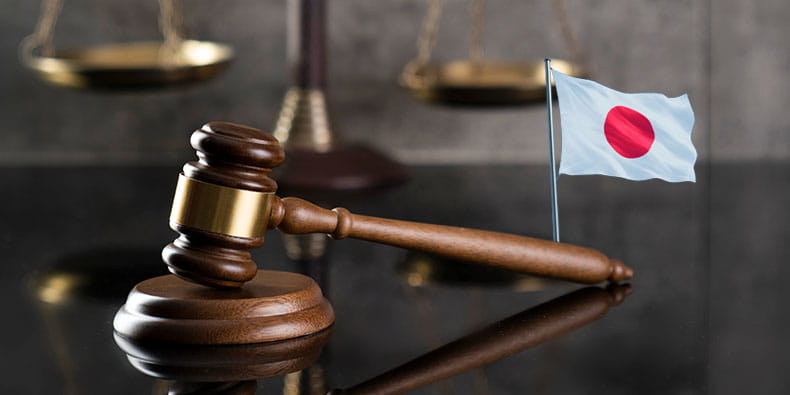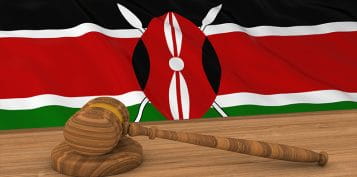Japan Gambling Laws – Laws, Games & Casinos
The history of fun games and wagering on races in Japan began centuries ago, but gambling has been illegal for most of the time. The modern Japan gambling laws have the task to regulate the activity of the land-based and online gambling locations. In this article, you can read about the latest legal changes, legal games, and gambling locations.

The gambling laws in Japan may seem strict at first glance, but they are created to protect the population. Since times are changing, the legislation also evolves. It is expected that within a few years, the first resort casinos will open doors, and players will have access to well-known casino games. This article has listed the legal games and gambling locations open right now. Use the links below to go to the relevant section, and don’t forget to check the Q&A section.
Japanese Gambling Laws – Gambling in the Past & Today
Before the modern Japan gambling law received its current form, it passed through multiple phases and underwent many changes. You may wonder how is that possible. Knowing that humans inhabited the Japanese archipelago since before 30,000 BCE, it is easy to conclude that there were also many games and competitions.
Japanese Gambling History
According to the history books, the Japanese gambling history began in the 7th century. This timeframe is too long to cover in a single article, so we will list the main events and then detail the Japanese laws regulating gambling. In the table below, you can find information about the main events during Japan’s gambling history.
| 📅 Date | 🗾 Japan’s Gambling History |
|---|---|
| Asuka Period (538-710) | In the “Nihon Shoki” (Chronicle of Japan), we read that in the year 685, Emperor Temmu liked playing sugo-roku (double sixes). This dice game is similar to backgammon, entertaining him greatly but vexing his successor, Empress Jito. Once Jito took the throne, she banned the game. |
| Heian Period (794-1185) | During the 8th century, part of the Heian period, gambling was illegal, but wagering on cockfights and horse races became popular. This was the time when the first professional gamblers (bakuto) appeared. |
| Kamakura Period (1185–1333) | In feudal Japan, strict laws regulated the activities of samurai and commoners. For example, between 1225 and 1284, nine prohibitions passed. These laws were enforced so strictly that they remained even during the samurai era. |
| Muromachi Period (1333–1568) & Azuchi–Momoyama Period (1568-1600) | Another great change in gambling brought Portugal after they first arrived at the archipelago in 1543. The European sailors and merchants brought modern European dice and card games. Soon the game Zanmai (a card game similar to blackjack) became extremely popular. |
| Edo Period (1600-1860) | In the Edo Period, gambling was prohibited for samurai. However, some of the high-class samurai kept wagering without facing punishments. On the other hand, a gambling citizen would be sentenced to death. Even so, the authorities could not completely eradicate gambling. That is why in 1718, the betting and gambling laws changed to set a difference between light and heavy betting. Lotteries and bets under 50 mon (Edo period currency) were permitted, alongside other games like chobo-ichi, yoido, kitsune, shishita, oome-kome, bin korogashi, shoso-shiroku, and more. |
| Meiji Period (1868–1912) | At the beginning of the 19th century, Japan changed its policy from complete national isolation to half-open foreign policy. The Americans introduced Western-style casino games like poker to the Japanese people, and the local gamblers liked it. The fascination with foreign games spread like wildfire, and this led to gambling activities prohibition in 1907. |
| Heisei Period (1989–2019) | The Japanese policy changed completely when on 27th July 2018, the Act for Development of Specified Complex Tourist Facilities Areas (the Act) was passed by the Japanese Diet. With this, gambling games provided by licenced operators in specific locations in Japan became legal. |
Seeing such a long history of gambling and the many changes and turns in it can make us wonder why people gamble. The truth is that every player has different reasons like winning money, improving social skills, trying new games, and playing for fun. You may not know this, but the popular Japanese arcade games Astro Race (1973), Space Invaders (1978), Pac-Man, and Donkey Kong are also regulated by Japanese laws.
Modern Japanese Gambling Laws

Even though the Japanese Criminal Code (Chapter XXIII) banns most types of gambling, there is still light in the darkness. During the last decades Japan changed its policy on gambling, and soon there might be even casinos comparable to those in the gambling cities worldwide like Monte Carlo, Las Vegas, Macau, Singapore, and more. Here are the current laws in Japan regulating gambling and casinos:
- Civil Code
- Penal Code
- Integrated Resort (IR) Promotion Law
- IR Implementation Law
- Act for Development of Specified Complex Tourist Facilities Areas (the Act)
If you are planning a trip to Japan, we recommend you familiarise yourself with the gaming legislation of the area where you will be going and avoid trouble with the law. Further down the article, you can read the legal wagering games with prizes and where you can gamble.
The gaming laws in the “Land of the Rising Sun” might be strict to the public, but gambling is not unheard of. For example, everyone can play gambling games for fun and there is no money, prize, or money stakes during the game. Apart from this, gambling games can be seen in Japanese films, manga, anime, and literature.
Legal Gambling Age in Japan
In Japan, gambling laws may ban most gambling games, but there are limitations applicable to all players for the few exceptions. The most important limitation is the legal gambling age of 20 years applicable to all native and foreign players. The exception is for Pachinko parlours, where players can be 18 years old. This difference is not strange because the gambling age worldwide in casinos and lottery, bingo, or keno rooms might also be different.
Winners Tax in Japan
Since the gambling laws in Japan are different from the rest of the world, the winner’s tax is also different. Fans of lottery games will be happy to hear that there is no lottery win tax.
Since the Pachinko parlours don’t give away money prizes or awards, there are no winners tax. On the other hand, upon entering, every player pays the government and the municipal body imposed entrance fee of ¥6000 (¥3000 national entrance fee and ¥3000 municipal entrance fee).
Wins from horse races and other races are considered “temporary income”. By legal definition, it is “an income that is not guaranteed to be received regularly”, and it also affects the insurance returns and other prizes players can win. The race wins are taxed annually and calculated with an easy formula where the player’s annual income and expenses are used.
Gambling Crimes & Penalties
According to the Penal code, gambling is a prohibited and considered criminal offence unless it is done in a licenced location. According to Article 185 of the Penal Code, violators face a fine of up to ¥500,000. The underage gambling is also a serious matter that is dealt with by the authorities and according to the situation.
The Japan gambling law and Article 186, Section 2 of the Penal Code are far stricter towards the operators than the players. The law states that anyone who runs illegal gambling locations or organises a group of habitual gamblers for his own purpose of profit faces imprisonment for the duration of at least three months and up to five years.
Japan’s Casino Administration Committee

The proper application of the gambling laws in Japan and all gambling-related matters are in the hands of the Japan Casino Administration Committee. The Committee was established on 7th January 2020, after the latest updates in the gambling legislation. Its duties include, but are not limited to:
- Monitor and regulate all gambling-related matters
- Supervise and manage Japan’s IR operators
- Grant and revoke licences
- Investigate IR operators
Acquiring a casino or gambling licence in Japan is a detailed and strict procedure. First, the area where the casino will be created has to be approved for gambling. According to the IR Implementation Law, the Minister of Land, Infrastructure, Transport and Tourism can approve the IR implementation plan for 10 years.
After that, the IR operators (kabushiki kaisha “KK” or good kaisha “GK” companies) are considered “Specified Complex Tourist Facilities”. They can apply for a casino business licence with 3 year-duration, and after that period, the licence has to be renewed. According to the law, there can be only one casino per IR area, and the gambling space should be up to 3 % of the casino floor. The operators are obligated to report their status to the Committee every 3 months and after the end of the fiscal year.
The Casino Administration Committee revokes licences, if it was obtained unjustly, illegal gambling occurred, or the casino was out of business for 6 months after the last inspection. Revoking the certification of the IR Area Implementation Plan means that the IR operator automatically loses the casino licence.
Legal Casinos in Japan

The Japan gambling laws are concrete steps towards modern legal gambling. The idea of many operators and businesses in the “Land of the Rising Sun” to build a gambling city with incredible casinos comparable to the ones on the Las Vegas Strip map. The work is still in progress, but even so, there are legal places where gamblers can wager and win prizes.
Japan’s Land-Based Gambling Locations
Japan passed a bill legalizing only casinos in December 2016. Many IR operators are bidding to open and run casinos in Osaka, Yokohama, and Tokyo. Even so, at the moment of writing this article, there are no legal brick and mortar casinos established under the Japanese gambling laws.
This means that tourists and locals have to wait until a casino is established. The alternative solution is to visit some of Asia’s gambling centres and play at casinos like the Venetian in Macao, which is largest casino in the world. Anyone who breaks the Japanese gambling laws and plays at an illegal gambling den is punished by the authorities or may get in trouble with Yakuza (who usually run the illegal gaming establishments).
Despite the difficulties, there are legal gambling games, which we will discuss in the next section of the article. Japanese residents and visitors of legal age can always try their luck on lottery, Pachinko, and different races. All those gambling activities are held by the government and therefore are licenced and held at special locations.
Online Gambling Laws in Japan
Even though most of the top Manila casino resorts and the rest of the casinos in Macao and the Philippines have legal online casinos, Japan laws ban them. The legislation states that online gambling is illegal in Japan. Still, there are no clear regulations if Japanese residents can play at offshore online gambling sites or foreign-operated online casinos.
This lack of clear legislation makes online casinos popular in Japan. Players choose browser-based or mobile gambling sites tempted by huge prizes or to pass their time. The interest in those sites is great, but players can face many dangers, and the least of this trouble is not to receive the won prize.
Legal Gambling Games in Japan
According to the Japanese gambling law, fantasy sports are illegal, while social games with no prize attached and skill games with no elements of chance are not regulated. Despite the limited number of gambling entertainments, compared to the best casinos in Macau, the prizes by Japanese gambling can bring joy. Here are the legal games in Japan you can play:
Besides the legal gambling games, Japanese people like playing other games of skill for fun. You may find many chess clubs, Mahjong parlours, and let’s not forget the extremely popular video games and esports. There are many competitions and locations where players can enjoy their favourite game without money prizes or breaking the Japanese gambling law.
Gambling Addiction in Japan

According to the medical reports, in 2017, over 3 million people showed signs of gambling addiction. That is why in Japan, problem gambling is a mental illness, and that is why the government covers the gambling addiction treatments with public health insurance.
The Japan gambling laws are yet to determine the damage of legalizing casinos. Unlike most governments, the Japanese authorities are already looking for the most accurate actions to battle the addiction towards one of the population’s favourite ways to pass their free time. Until then, all addicts can turn to medical centres and gambling prevention organisations.
Japan Gambling Law Popular Questions
We dedicated our entire article to Japan gambling laws, legal gaming locations, and legal gambling games. Now, we will answer some popular questions on this topic. The information is summarized, but we will add a link to the relevant section of the article where you can find more details.





